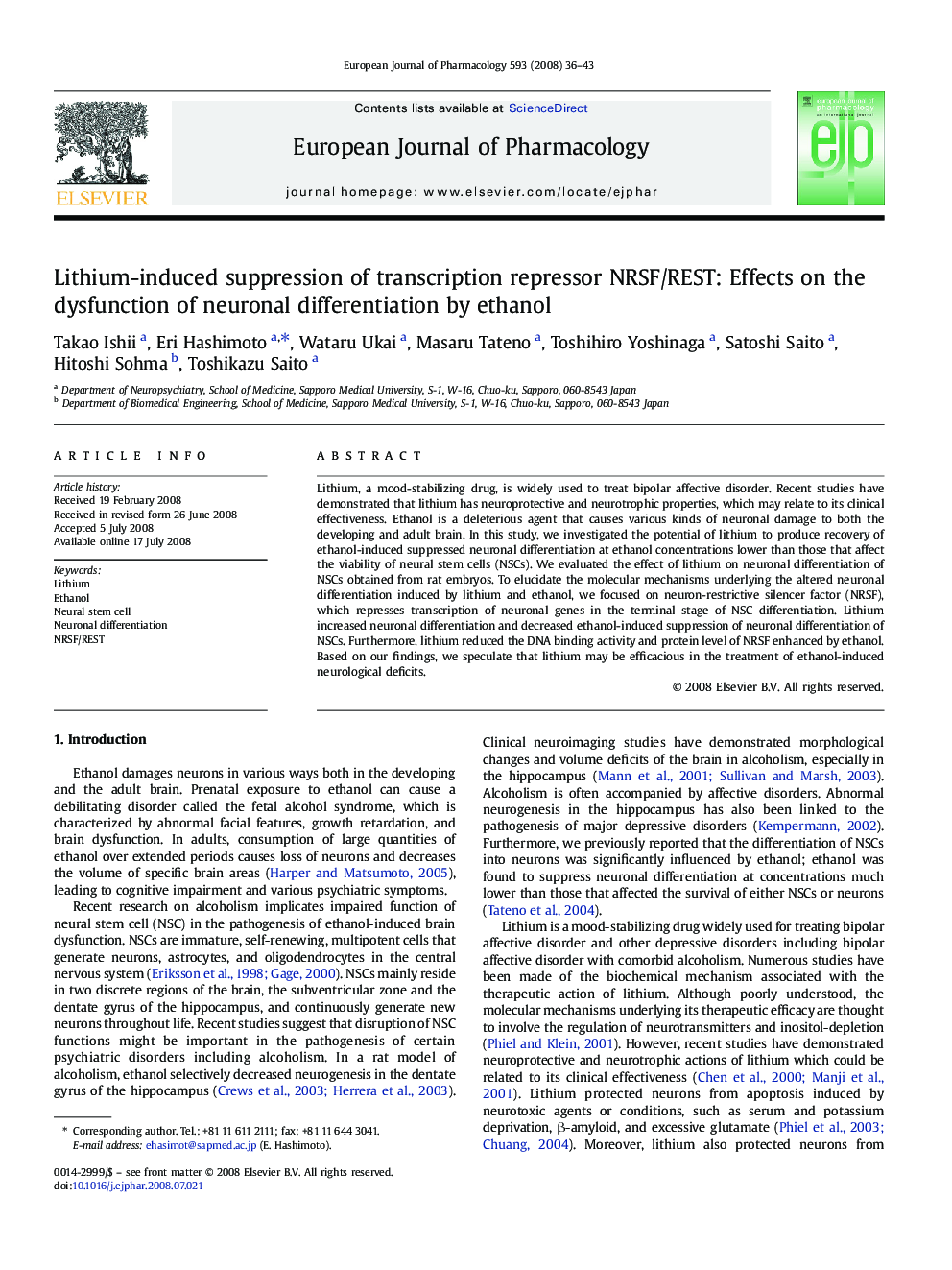| Article ID | Journal | Published Year | Pages | File Type |
|---|---|---|---|---|
| 2534991 | European Journal of Pharmacology | 2008 | 8 Pages |
Lithium, a mood-stabilizing drug, is widely used to treat bipolar affective disorder. Recent studies have demonstrated that lithium has neuroprotective and neurotrophic properties, which may relate to its clinical effectiveness. Ethanol is a deleterious agent that causes various kinds of neuronal damage to both the developing and adult brain. In this study, we investigated the potential of lithium to produce recovery of ethanol-induced suppressed neuronal differentiation at ethanol concentrations lower than those that affect the viability of neural stem cells (NSCs). We evaluated the effect of lithium on neuronal differentiation of NSCs obtained from rat embryos. To elucidate the molecular mechanisms underlying the altered neuronal differentiation induced by lithium and ethanol, we focused on neuron-restrictive silencer factor (NRSF), which represses transcription of neuronal genes in the terminal stage of NSC differentiation. Lithium increased neuronal differentiation and decreased ethanol-induced suppression of neuronal differentiation of NSCs. Furthermore, lithium reduced the DNA binding activity and protein level of NRSF enhanced by ethanol. Based on our findings, we speculate that lithium may be efficacious in the treatment of ethanol-induced neurological deficits.
